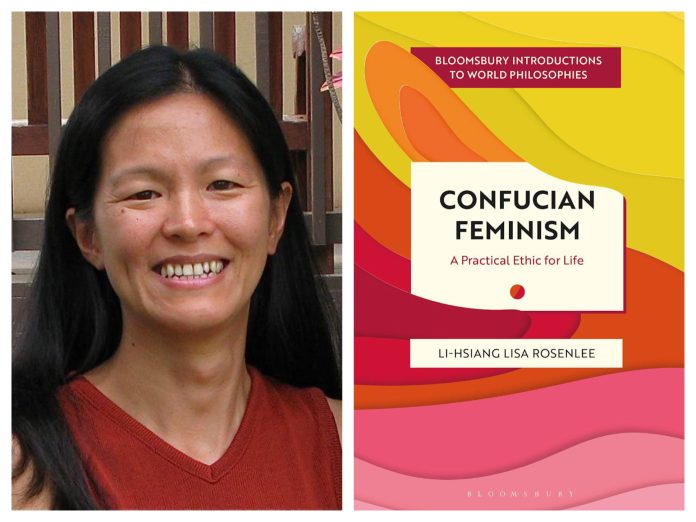Dr. Li-Hsiang Lisa Rosenlee, professor of Philosophy at the University of Hawai‘i–West O‘ahu, recently published a new book, “Confucian Feminism: A Practical Ethic for Life.”
“My book proposes a hybrid feminist theory using characteristic Confucian terms, concepts, and methods to envision a liberating, feminist future for all transculturally and transnationally,” Rosenlee said.
“Confucian Feminism” was first published on Aug. 22 by Bloomsbury Publishing, known for its extensive academic publishing from the world’s most recognized experts.
“With its theoretical roots in the Confucian textual tradition, this is the first re-imagining of Confucianism that enriches, and is enriched by, feminism,” according to a description of Rosenlee’s book by Bloomsbury.
The description continued, “Incorporating distinctive Confucian conceptual tools such as ren (benevolent governance), xiao (filial care), you (friendship), li (ritual), and datong (great community), Rosenlee creates an ethic of care that is feminist and Confucian. At the same time she confronts the issue of gender inequity in Confucian thought. … Here is a practical ethic that uses Confucianism to navigate the contours of inequality in everyday life.”
Rosenlee’s “Confucian Feminism” is part of a series, Bloomsbury Introductions to World Philosophies, which delivers primers reflecting new developments in the trajectory of world philosophies, according to the Bloomsbury website. Instead of privileging a single philosophical approach as the basis of comparison, the series provides a platform for diverse philosophical perspectives to accommodate the different dimensions of cross-cultural philosophizing.
In a book review by Sarah A. Mattice, a professor with the Department of Philosophy and Religious Studies at the University of North Florida, Mattice said, “Rosenlee’s brilliant work is at once deeply Confucian, deeply feminist, and yet not bound by the prior contours of either tradition. Her wide-ranging and artful theorizing, directed toward envisioning a liberatory future for us all, is truly an example of the best of contemporary comparative philosophy.”
